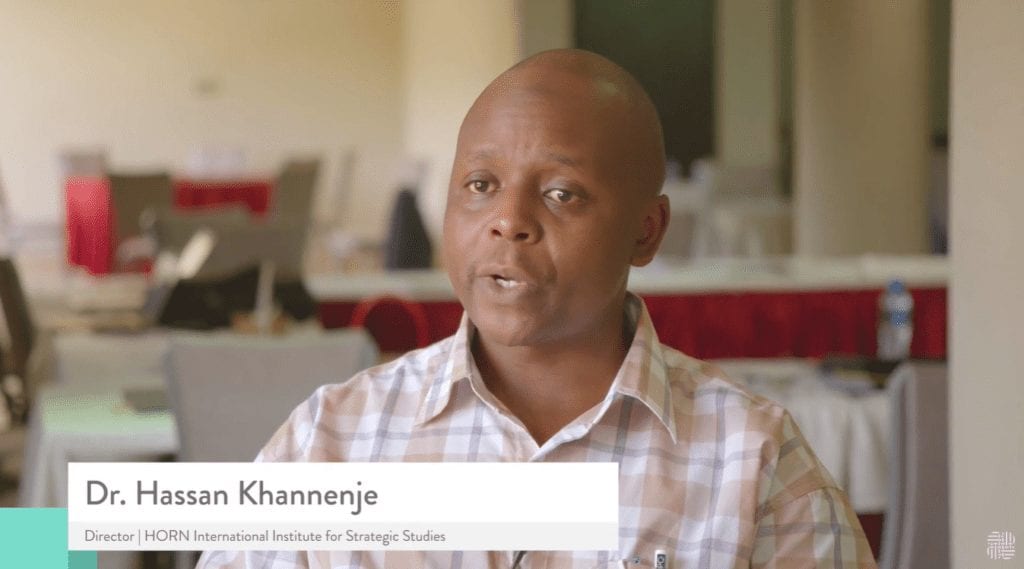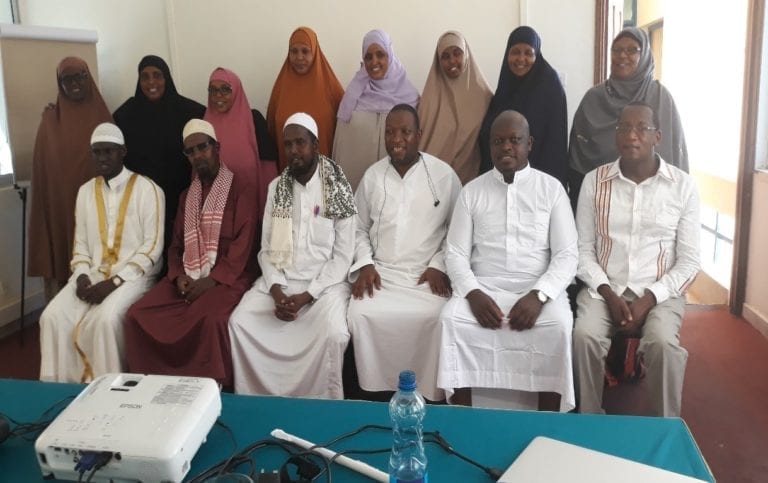On 20th September 2017, Tony Blair Institute for Global Change (TBI) visited CSCR offices to explore possible ways of collaboration and partnership with BRAVE in implementing Supporting Leaders Kenya Program. This included familiarization with BRAVE activities, what it does and its objectives. Cleo Blackman, Director of Programmes of TBI explained their work and purpose. She mentioned their areas of work, programs, pilot projects, the impact they have had so far and the countries they have worked with.
 Christopher Rider, Senior Project Manager of TBI expounded on some of their work which include an interfaith CVE programme held in Nigeria where sixty Christian and Muslim religious leaders were selected for this purpose. A manual for this programme was developed whereby six modules aimed at addressing Muslim leaders issues centering on narratives and counter narratives, and the 7th module was for the Christian leaders. These religious leaders were all selected from the same geographical area for maximum impact. TBI built capacities of organizations to train the locals and these trainings ranged from step down trainings to local programmes. He added that they wanted to share their experiences from Nigeria with CSCR/BRAVE in order to forge a partnership in implementing Supporting Leaders Kenya Programme. The objectives of the programme are to:
Christopher Rider, Senior Project Manager of TBI expounded on some of their work which include an interfaith CVE programme held in Nigeria where sixty Christian and Muslim religious leaders were selected for this purpose. A manual for this programme was developed whereby six modules aimed at addressing Muslim leaders issues centering on narratives and counter narratives, and the 7th module was for the Christian leaders. These religious leaders were all selected from the same geographical area for maximum impact. TBI built capacities of organizations to train the locals and these trainings ranged from step down trainings to local programmes. He added that they wanted to share their experiences from Nigeria with CSCR/BRAVE in order to forge a partnership in implementing Supporting Leaders Kenya Programme. The objectives of the programme are to:
- Empower religious leaders, both men and women, on Preventing and Countering Violent Extremism
- Reach the at risk communities of being drawn into extremism
- Demonstrate effectiveness of Inter-Religious Action (IRA)
- Build organisational capacity
- Deliver impact at community level
- Include an integrated transition/sustainability strategy

Supporting Leaders Kenya aim at creating effective inter-religious network of Christian and Muslim leaders who are actively contributing to changing attitudes towards the other in their communities, reducing incidents of inter-religious violence and building the mutual respect and understanding on which localized social cohesion depends. The project will test the proposition that inter-religious action led by a combination of established (mentor) and emerging (mentee) male and female religious leaders improves social cohesion across selected mixed-faith communities and builds resilience to extremist narratives.
